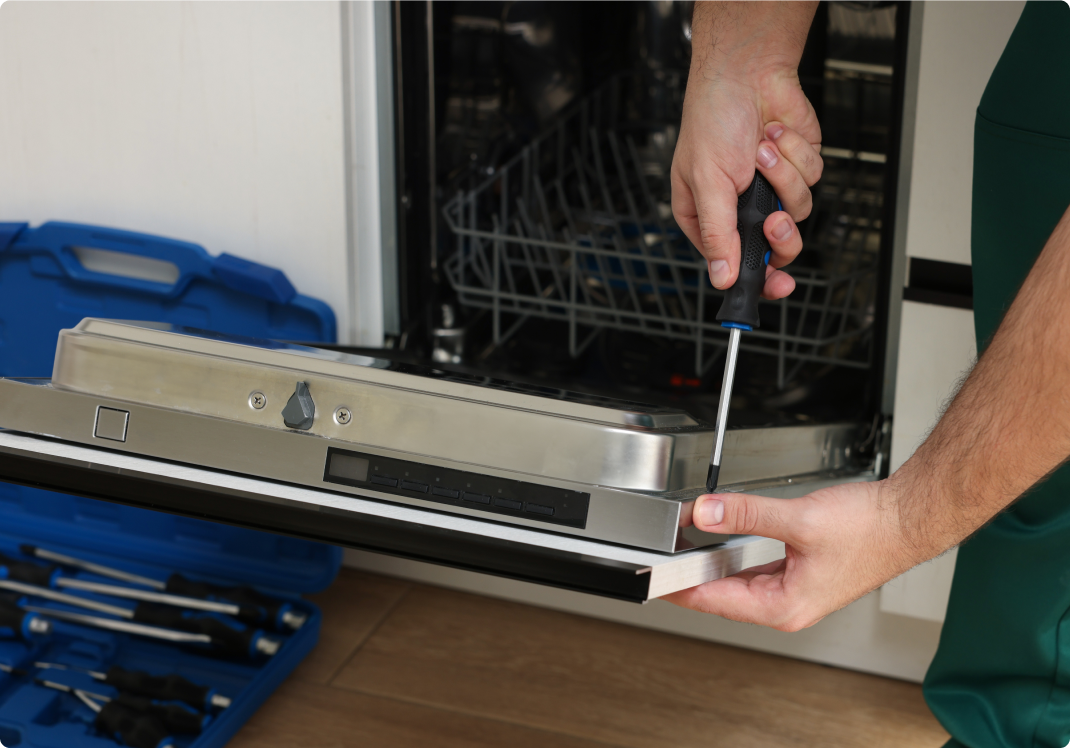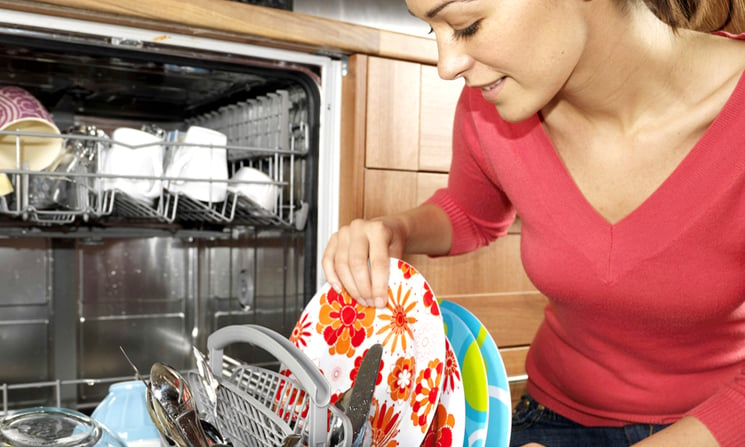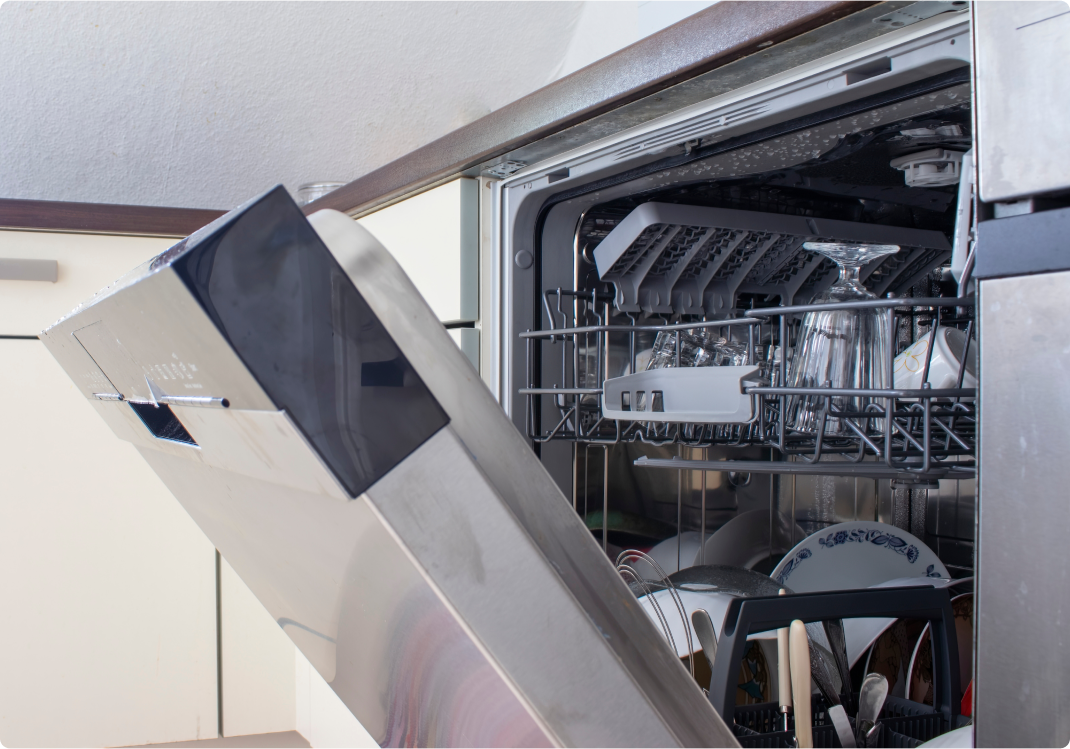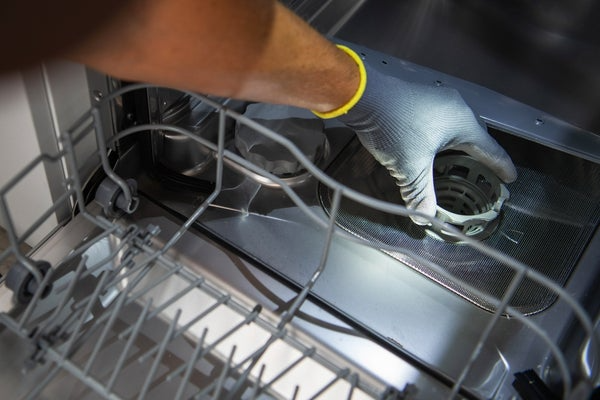Common issues and tips for dishwasher door repair
Before you begin repairs, be sure to read your owner’s manual for specific instructions and diagrams for your particular model to make sure you have all the right dishwasher door repair parts and materials on hand.
Faulty Door Seals
If you notice your dishwasher door leaking water from the front of your dishwasher, it could be because of a faulty door seal.
- Inspect the Door Seal. Open your dishwasher’s door and examine the gasket around the edge for any signs of cracking or corrosion.
- Clean the Gasket. If there’s no visible damage, use a brush or cloth to clean the gasket and remove any debris or detergent buildup.
- Replace the Gasket. If the gasket shows signs of wear and tear, it’s time to replace it. Pry the old gasket out of the narrow groove that holds it.
- Install the New Gasket. Insert the new gasket into the groove, ensuring it fits securely.
- Maintain the Gasket. Wipe down the new gasket regularly to keep it in good working condition and prevent future issues.
Dishwasher Door Springs
Dishwasher door springs endure a lot of wear and tear since the door is opened so frequently by you and your family. If you notice that your door opens unevenly or drops down suddenly with force, it's a sign that you need to learn how to fix dishwasher door spring issues— one or both springs may need replacing. Like the door seal, broken springs may eventually cause leaks, so it’s best to take action as soon as you notice a problem. Even if just one spring is broken, it’s best to replace both at the same time so the door opens and closes evenly.
Safety Tip: Before you start working, make sure you disconnect the electricity to the dishwasher at the circuit breaker or fuse box, as well as turn off water to the machine.
Whether your model’s springs are attached to the door with a hook or to a cable, you’ll have to get access to them. Refer to your owner’s manual for a diagram of your particular model and instructions on how to remove the panel. You may need to use a screwdriver or set of pliers to detach the old springs. Attach the new ones, adjusting the tension as needed, and replace the door panels.



